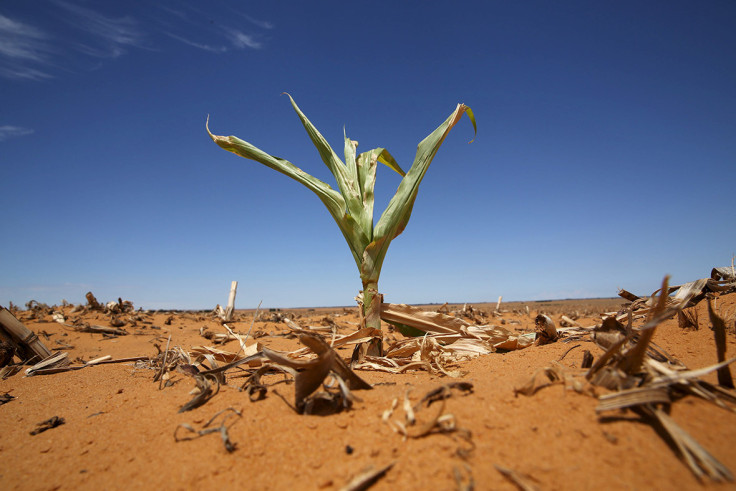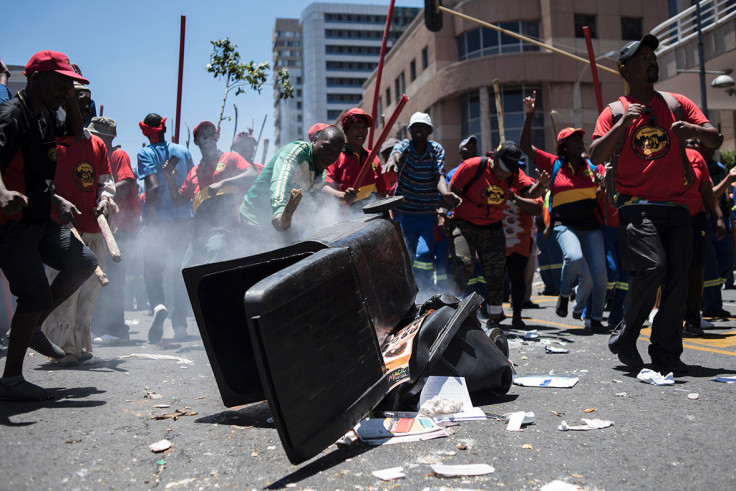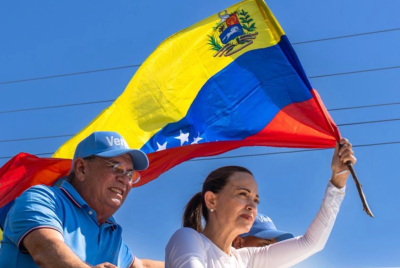South Africa: Could Zimbabwe-style farm invasions be triggered by worst drought on record?

The parched landscape of the Free State in South Africa is dotted with whirlwinds tossing up huge spirals of dust into the sky. In January of most years gone, this traditional farming heartland of the country would be experiencing tremendous thunderstorms with up to 90mm of rain falling in the first month of the year.
But South Africa is in the midst of the worst drought in recorded history, which has raised concerns by some commercial farmers that the country could see widespread social unrest, including Zimbabwe-style farm invasions.
The drought has hit maize production in South Africa, with the country being forced to import from South America over a million tonnes of maize to meet domestic demand, according to the grain producers association, GrainSA.
Essentially the government is fighting its own population.
Small-scale farmers, who are mostly black, have been affected most by the lack of rain, with many of them being unable to plant any crops this year, and many of the farmers have been forced to kill or sell their livestock at below market value prices.
The government announced in November 2015 that it would put into place a R220m (£9.3m) bailout package to mitigate the impact of the drought on small-scale subsistence farmers, but ramifications of the dry conditions will be felt for years to come.
Meanwhile, the commercial farmers in the worst hit areas, which include the Free State and the North West region of South Africa, have failed to plant their crops because of the unseasonably dry weather, leading to a 30% drop in maize production.
Food prices in the country have consequently soared, with the price of white maize, a main staple food for most South Africans, more than doubling over the past 12 months on the South Africa Futures Exchange.
As food prices have increased, the South African economy has also stagnated, with the rand losing a fifth of its value since June 2015, while unemployment stubbornly remains at around 25%.
Social unrest
These conditions have created the ideal conditions for social unrest to increase during 2016, according to Louis Meintjes, the president of the Transvaal Agricultural Union. "When food prices have risen in the past, we have seen unrest shifting from the farming community to the township and the offices of local government.
"Local officials do not have the necessary training for this kind of situation and call in the police, and the police have even less training and they resort to strong-arm tactics Essentially the government is fighting its own population."

The situation is so precarious that some commercial farmers have begun to voice concerns that the drought could precipitate land occupations similar to those seen in neighbouring Zimbabwe.
"We are concerned because there are politicians from both the ruling African National Congress (ANC) and the populist opposition party, the Economic Freedom Fighters (EFF), trying to attract support by calling on people to occupy land illegally," Meintjes added.
He points to EFF-led land invasions in Cape Town in April 2015, where 500 people occupied state-owned land, and also the fact that members of the ANC Youth League (ANCYL) travelled to Zimbabwe to research that country's land reform programme as examples of "toxic discourse" engulfing South Africa.
As South Africans prepare to vote in municipal elections in May and August 2016, the weak economy and food insecurity caused by the drought will ensure that the issue of land reform will feature heavily during the elections.
The land question
The circumstances surrounding land ownership in South Africa, where white farmers own most of the commercial farms and most arable land, are similar to the conditions that existed in Zimbabwe prior to the country's controversial land reform programme in 2000.
The "fast track" land redistribution campaign in Zimbabwe witnessed so-called 'war veterans' and government supporters forcibly confiscating white farms without compensation. Around 4,000 white-owned farms have been occupied during the land grabs in Zimbabwe, which began 15 years ago.
In South Africa, a land reform programme has been in place since the end of apartheid in 1994, but many of the programme's critics are frustrated at the slow pace of the change, with around 80% of the farmland in the country being owned by 10% of the population, according to government data.
While the EFF has stopped short of calling for the violent removal of white farmers from the land, they are demanding an acceleration of land redistribution. The EFF, which is known for its members wearing red overalls and berets, is led by the firebrand politician Julius Malema who is keen to make land reform a key election issue to increase supporter base.
Meanwhile, the drought is expected to slow down the process of land reform by years, if not decades, according to Simon Allison, an analyst for Institute for Security Studies. "The drought, together with rising food prices and growing unemployment predicted by the finance minister, could well spark a period of widespread political unrest," he says.
Rainfall too late
While the rains have begun to fall in parts of the affected regions, they have come too late for farmers in the North West of South Africa, with only around half of the maize capacity being realised, according to GrainSA CEO Jannie de Villiers.
"Some farmers are taking a chance by planting their crops late, but we can't rely on these crops yielding because they will not be ready before autumn [in May] when temperatures begin to fall. However, if we receive sufficient rain at the beginning of summer in the southern hemisphere, then maize production for next year should return to the levels that we traditionally expect," said de Villiers.
While there may be some optimism that farmers in South Africa could experience an improvement of fortunes in 2017, the prospect of civil unrest remains a real possibility in the near-term.
© Copyright IBTimes 2025. All rights reserved.




















